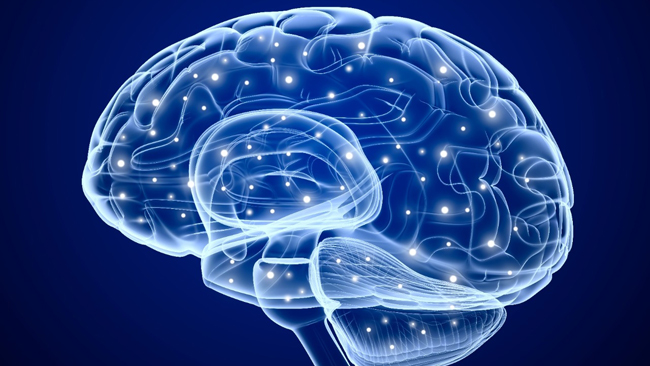When a professional fighter scores a knock out, it means that his opponent was struck so hard in the head, one or more times, that he lost consciousness. The truth is, he has received a traumatic brain injury (TBI) in the form of a concussion. Once he regains consciousness and the fight has ended, the losing fighter is not allowed to just call it a bad night and go home to care for his wounds. He is required to see a neurologist and is not allowed to return the ring for a period of at least 30 days after receiving medical clearance. This is to be sure that there is no underlying brain damage.
If you are knocked unconscious in an accident, the same precautions should be taken as with the fighter. Losing consciousness, even for a moment following an accident, is a sign that your brain has received a bruise or possibly worse. Even if you do not lose consciousness and are dazed or dizzy, that should also be taken very seriously. No two traumatic brains injuries are alike. Some symptoms may not manifest for days or even weeks following a head injury. That is why it is important to get evaluated by a neurologist immediately after receiving any blow to the head or violent jarring or shaking of the head.
The Brain Injury Association reports that 2.5 million children and adults sustain brain injuries in the U.S each year
Of those, 2.2 million are treated in the emergency department. 280,000 are hospitalized with TBI and 50,000 die because of TBI. There are 5.3 million Americans living with TBI related disabilities. The number of people who do not receive necessary treatment for TBI in the US each year is unknown.
Possible Types of Traumatic Brain Injuries
Auto accidents are the third leading cause of non-penetrating TBI, following falls (#1) and struck by or against (#2). TBI’s are classified as several different types:
· Concussion – A concussion is an injury caused by either a blow to the head, a violent shaking of the head or force from sudden acceleration and deceleration. A concussion is caused when the brain receives trauma causing blood vessels to stretch and possible cranial nerve damage. Concussions can be serious and result in impairments that may last a lifetime. Some impairments may be helped by rehabilitation but many individuals are released from the emergency department without any guidance or referral for further care.
An individual who has received a concussion may never lose consciousness but feel dazed or dizzy. Concussions do not always show up on CAT scans or other diagnostic imaging tests.
· Contusion – A contusion is a bleeding (bruise) on the brain caused by a direct impact. Surgery may be required to remove large contusions.
· Coup-Contrecoup – This term describes contusions that occur on the impacted side of the brain as well as the opposite side. When the force is great enough to cause a contusion at the site of the impact and propel the brain against the opposite side of the skull, causing a second contusion, the result is known as coup-contrecoup.
· Diffuse Axonal Injury – This type of injury is the result of shaking or strong rotation of the head. It is common with motorcycle accidents when the rider tumbles at high speed after being ejected. It is also common in rollover car crashes as well as shaken baby syndrome. The brain tissues are torn extensively against the rapidly moving skull. Brain chemicals may be released, thus, causing additional injury. The damage from diffuse axonal injury can be temporary or permanent widespread damage, coma and death. In the case of survival, lifelong functional impairment is likely.
Every head injury should be taken seriously. If you receive a blow to the head or you were the victim of whiplash or in a rollover crash, it is imperative that you get a complete neurological assessment immediately. Some TBIs can have no symptoms while the injury to the brain is worsening. A doctor will assess your cognitive ability, socialization skills or difficulties, behavioral issues and other psychological, physiological and emotional symptoms.
The doctor may also prescribe a series of imaging test to assess the area and amount of damage. These tests, such as computerized topography (CAT) magnetic resonance imaging (MRI) and intercranial pressure (ICP) monitoring, can detect bruising, bleeding, swelling and abnormal pressure.
Do not assume you are OK after a trauma to the head. The quality of your future may be at stake.
Retaining a Brain Injury Lawyer
If you are diagnosed with a TBI that was caused by the negligence of another person or entity, such as a motor vehicle accident, slip, trip and fall or workplace accident, you should seek a brain injury lawyer with a proven record of success in litigating these challenging cases. Only an experienced brain injury attorney is qualified to handle your case. The lawyer can provide a team of medical experts to determine the severity of your injury and how long the rehabilitation may take. The worst-case scenario would mean limited recovery and the loss of income over your lifetime. That cost is often underestimated by the inexperienced attorney. The goal of many attorneys is to settle quickly and convince the client they did well. An experienced brain injury attorney will know the true value of your case and seek the maximum award possible. Having the right attorney is critical to the degree of success in your case. Contact Vititoe Law Group for a free evaluation of your case. Vititoe Law Group has successfully handled brain injury cases and will be happy to discuss your case with you.








